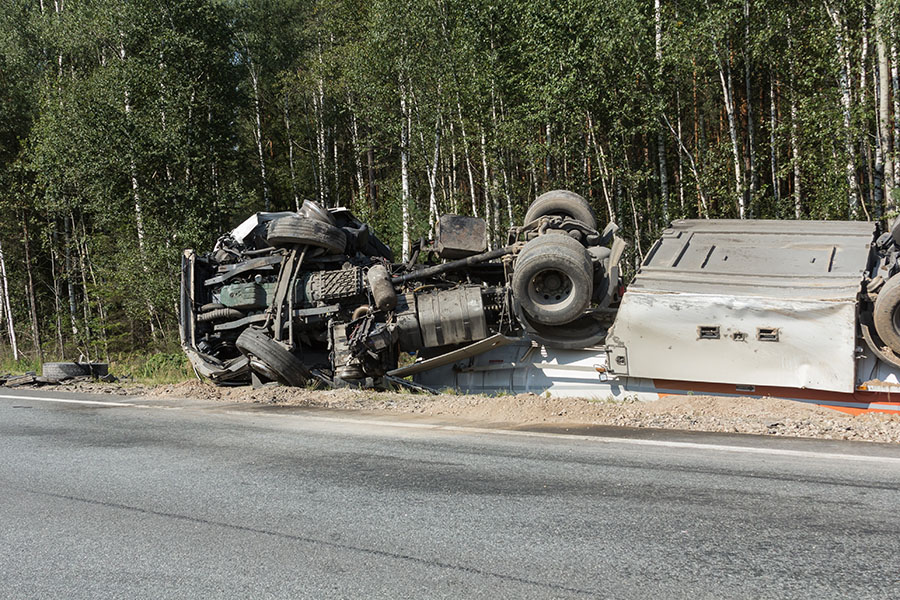It is commonly believed by today’s drivers on the road that tanker truck accidents are nothing to worry about in comparison to semi-trailer truck accidents. Since they are smaller in size, it is assumed that crashes will have less consequences and there will not be a need to call a truck accident lawyer for help. However, these drivers are surprised when they experience a tanker truck accident for themselves and find the disastrous effects to be much worse than they thought.
Due to the kind of cargo pulled by the tanker truck as well as its unique build with a cylinder tank set on top, the potential for dangerous crashes on the road in some cases is higher.
Tanker Truck Cargo
While semi-trailer trucks have large boxes attached on their backs that haul massive solid pieces such as lumber, food and furniture, tanker trucks use their cylinder tanks to transport liquids. These have the possibility to catalyze major damage on highways and roads in a tanker truck accident if they are flammable or spilled.
Many products delivered for consumption to restaurants and other clients include:
- Wine, beer and other alcohol
- Flour and grain
- Food-grade oils (olive, vegetable, canola, etc.)
- Fruit juices
- Corn syrup
Industrial clientele of trucking companies often contract drivers to carry more dangerous, chemical products such as:
- Oil
- Radioactive materials
- Pesticides
- Ethanol
- Diesel fuel
Causes of Accidents
Any drivers on the road, especially tanker truck drivers, are susceptible to distracted driving while hauling their loads across the country. Texting while operating the vehicle, eating in the driver’s seat and driving with little to no sleep are examples, which become more common if employers disregard federal laws to keep them on the road for more than fourteen consecutive hours. Sometimes corners are cut by trucking company executives for personal profit, which could mean the personal loss of life for innocent bystanders.
If a cylinder tank is not properly secured to the truck’s body before a trip, jackknife accidents can occur, where the tank attempts to roll off on its own, forcing the vehicle down with it. Sloshing is possible from drivers without full loads and the changed center of gravity has a high likelihood of toppling the tanker truck into the ground.
Disastrous Effects
Whatever the cause of the tanker truck accident, these situations carry consequences heavier than the cargo they carry that affect not only drivers and their vehicle but also the lives of others.
A tanker truck accident can be the spark that ignites flammable materials in the back cylinder, resulting in a fire or explosion. These can set the vehicle ablaze as well as surrounding ground and buildings, putting innocent bystanders in danger. The driver may not survive an accident depending on the amount and type of material ignited, but in the least they will walk away with severe burns and skin disfigurement.
Chemical products such as pesticides, if spilled after a jackknife or rollover accident, can seep deep through the ground, reaching hidden groundwater reservoirs consumed by local populations. Not only does this cause sickness in humans, but it also disrupts the invaded ecosystem by poisoning flora and fauna that will later affect farmers and large-scale food supply. Radioactive materials and other toxic chemicals fumigate the air after a tanker truck accident, so drivers nearby should be way not to breathe them in.
Contact Lawyers with Tanker Truck Accident Experience
In the case of dealing with a tanker truck accident, whether you are the driver or a victim, Strickland and Kendall have legal professionals able to help at any time. We have worked with hundreds of clients in similar disasters you have experienced and we have the knowledge to best assist you moving forward with your case.
Even if you are unsure your situation calls for an official claim, contact us so we can assess what happened and fight for compensation you deserve. Our free consultation is available by giving us a call at 334.269.3230.
